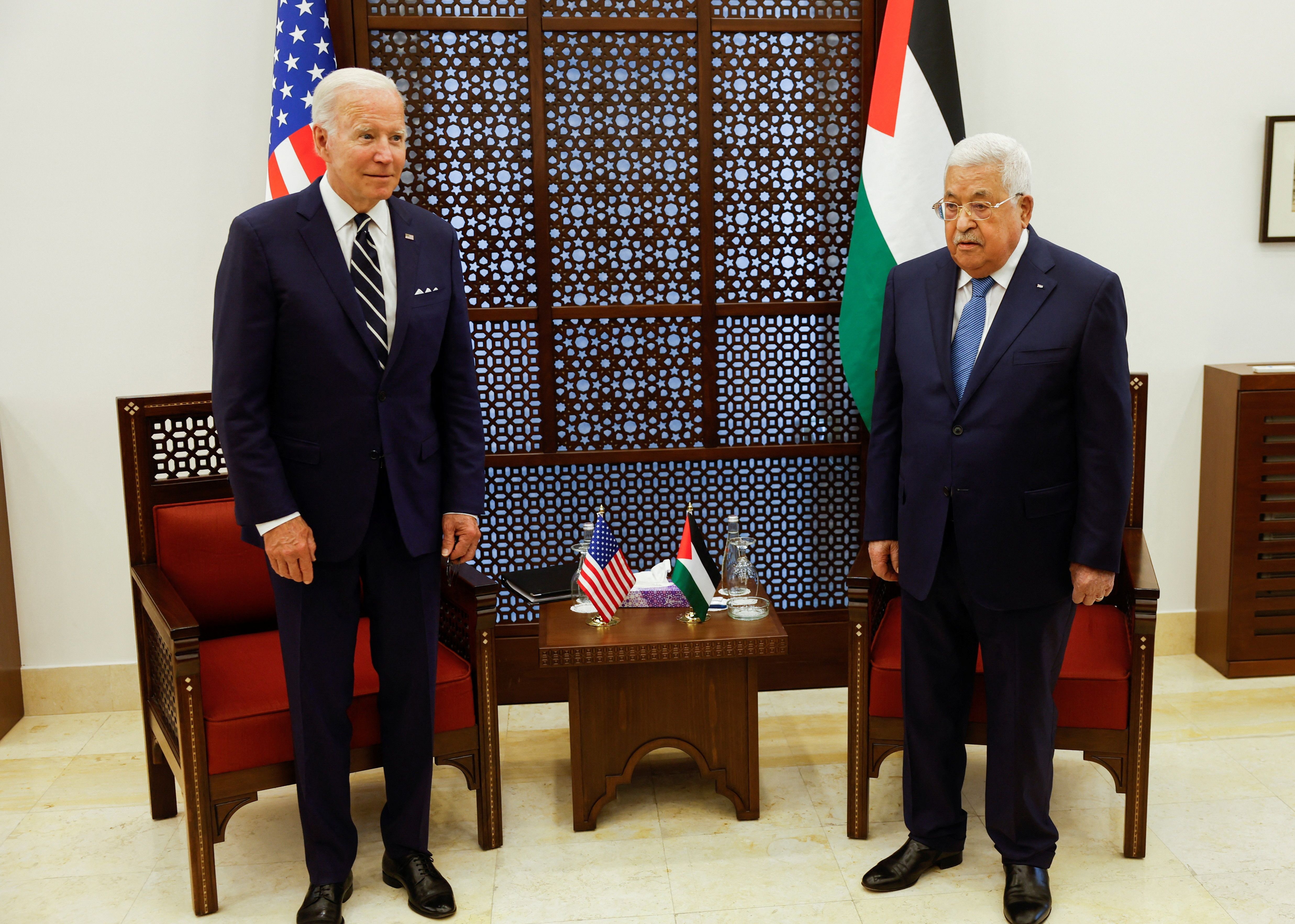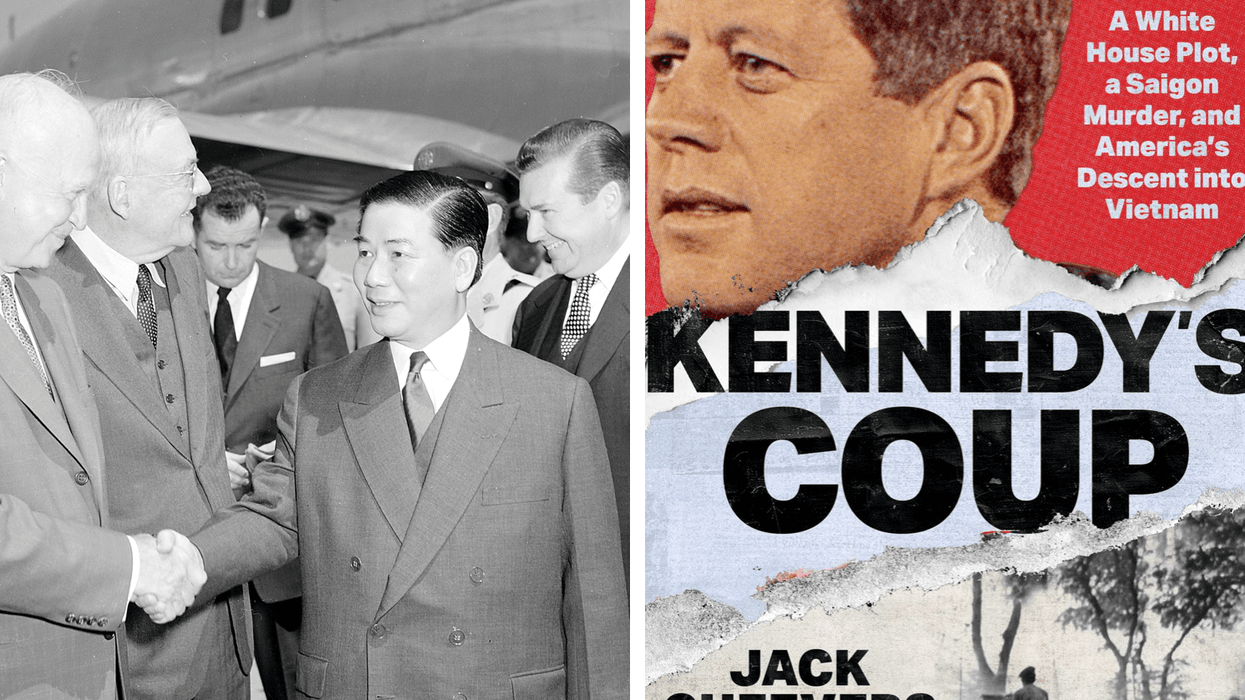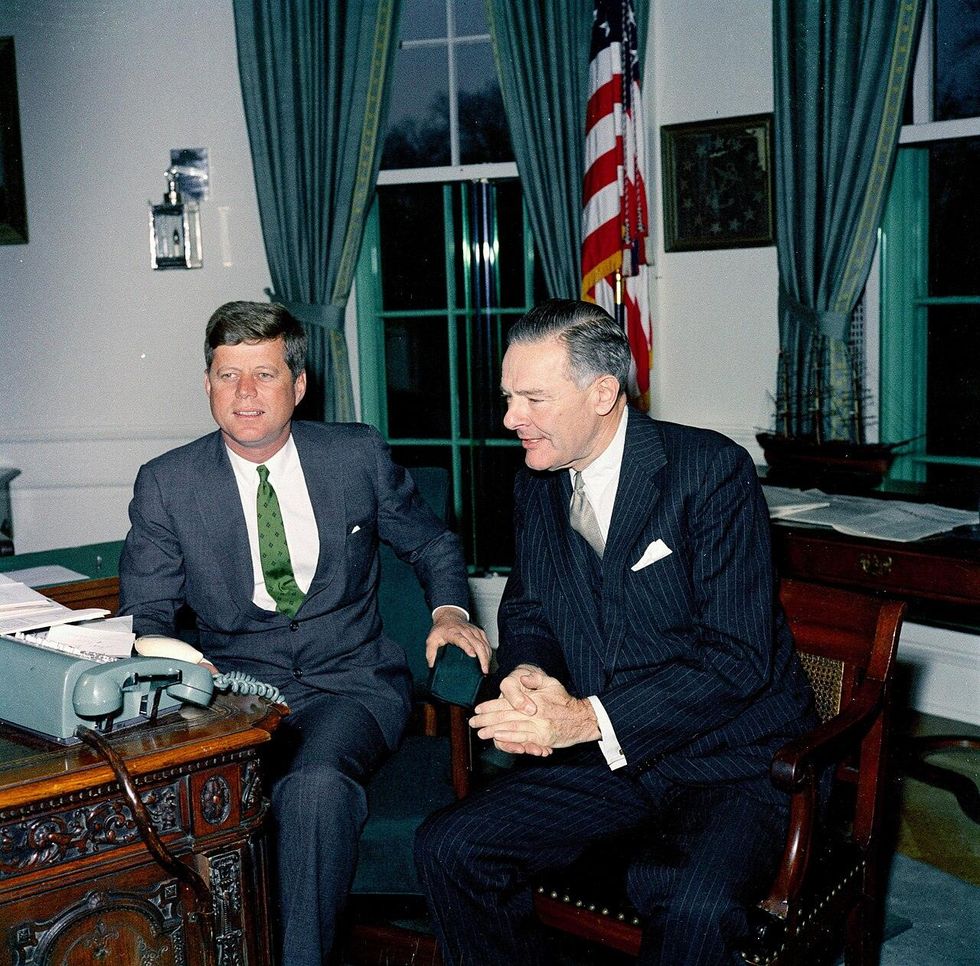Over the last few days, there has been a flurry of news reports confirming that U.S. policy regarding Gaza is firmly based on revitalizing the Palestinian Authority (PA).
This policy is part of the standard Great Power diplomatic toolkit aimed at empowering a supposed Third Force as a way out of a political and military nightmare. Alas, the record shows that Third Force policies are most often chimeras, not solutions, and that the choice boils down to cutting a deal with the group that is beyond the pale, or else accepting war for the indefinite future.
One of the first Third Force policies took place just over a century ago, when the UK, fighting an insurgency in Ireland, looked for a political grouping that would be intermediate between the now-discredited system of direct rule and the demonized Sinn Fein. For several years, Lloyd George pursued a will o’ the wisp Gladstoneism, creating and backing a Southern Irish Parliament; but in the end, was forced to abandon this idea and invite Sinn Fein’s own Eamon de Valera himself to London to negotiate what became the Free State.
Fast forward to Algeria, when French President Charles De Gaulle, having been returned to power by the threat of military revolt and having initially called for FLN rebels to surrender honorably, called for his version of a Third Force: an Algeria “governed by Algerians but in close union with France.” This alternative to both the status quo and the “horrifying misery” of secession was, a year-and-a-half later, discarded in favor of negotiations with the FLN and independence.
One can tell a similar story for other Great Powers fighting counterinsurgencies, such as the Russians in Afghanistan (or, at least in terms of local military dominance, the Dutch in Indonesia or the Nationalist government in South Africa); but the point is that when the United States chases after a Third Force, as it did in Cuba in 1958 (neither Batista nor Castro) and in Iran in 1978 (neither the Shah nor Khomeini), it is following an oft-trodden path. That path is a dead end, and for a very simple reason: the lengthy fighting (or, in the case of Iran, repression) that leads policy makers to hunt around for a Third Force also makes it impossible for any such Force to have more than a fraction of the legitimacy of the foe that the Great Power, or its client, has been combating.
Of course, policy makers may decide, for any number of reasons, that they prefer to continue fighting than to work out a political arrangement with their enemies. In this regard, waving the standard of a Third Force may be less a sign of naivete and more a way to try and distract audiences from the decision to continue fighting. Such a decision is often accompanied by invocation of the enemy’s moral repugnancy; for example, its use of terrorism and its maximalist political program. The fact that those making these arguments may themselves have a history of both negotiating and coordinating with the repugnant enemy does not make the moral condemnation or the search for a Third Force any the less heartfelt. But it does, however, present a way out — if the will is there.
A good case in point is U.S. and Israeli policy with regard to the PLO after the latter was expelled from Lebanon. One might have imagined that, after Yassir Arafat and company had decamped to Tunisia, the Third Force — in this case, King Hussein’s Jordan — would have been at the center of attempts to find a Palestinian policy. But those attempts ended, predictably, in a dead end; and the Israelis turned to the PLO, negotiating with the group that their own legislation had until then prohibited them from contacting.
Of course, the Oslo Accords failed — a point I will return to below — but the issue here is that both the U.S. and Israel made progress precisely because they jettisoned the Third Force fantasy, and de-anathematized the PLO. Indeed, the boycott of the PLO was always shot through with holes, with face being saved by dint of conversations that took place through third parties. Nonetheless, as a political gesture, Prime Minister Yitzhak Rabin’s move was symbolically important, not only convulsing Israel but costing him his life, an outcome which could easily have happened to De Gaulle as well.
The point is simple: peace is made between enemies, not friends. Negotiations can occur without any implication that one side trusts the other, or considers it morally legitimate, or that future arrangements can never be scrapped (as seems to have happened between Hamas and Israel, and Hamas and the U.S., on multiple occasions over the past decade). Negotiations in this sense are not a reward for good behavior, but a response to vile actions and bad faith.
For in the end, the only alternative is to keep fighting, with the goal of a Hamas-free Gaza administered by a revitalized PA receding like Gatsby’s green light. The Israelis can fight for weeks, months, or even years more, with the U.S. continuing to provide them cover; they can kill or capture or exile every member of Hamas; and it will not make the PA any stronger or better able to administer Gaza. It is time for those who pride themselves on their sense of realism to face facts and drop the Third Force.





 President John F. Kennedy and Henry Cabot Lodge Jr. in 1961. (Robert Knudsen/White House Photo)
President John F. Kennedy and Henry Cabot Lodge Jr. in 1961. (Robert Knudsen/White House Photo)










